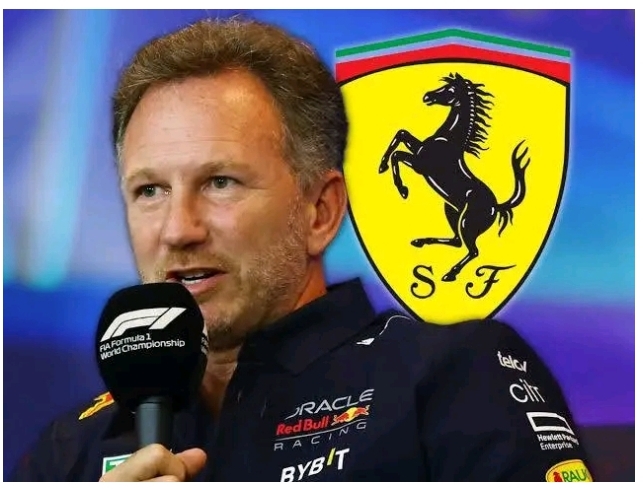In a seismic shift within the Formula 1 paddock, Christian Horner has officially stepped down as Team Principal and CEO of Red Bull Racing, prematurely terminating a contract that had five years remaining. The surprise departure comes amid widespread speculation over internal tensions and a major restructuring within the sport’s most dominant team of the past decade. In a bold career move, Horner has accepted a staggering $15 million-per-year contract to join Ferrari, signaling a new chapter for both his career and for the Italian racing giant.
A Stunning Move in the World of Formula 1
Christian Horner’s exit from Red Bull comes as one of the most significant management shake-ups in recent F1 history. Having joined Red Bull Racing in 2005, Horner was not just the longest-serving team principal on the grid, but also one of the most successful. Under his leadership, Red Bull claimed multiple Constructors’ and Drivers’ Championships, revolutionized team operations, and established a new benchmark for performance and consistency in the hybrid era.
Despite extending his contract through 2030 just last year, mounting speculation surrounding internal dynamics, disagreements with senior figures in the Red Bull organization, and his reported frustration with off-track controversies may have contributed to his decision to leave earlier than anticipated.
The Ferrari Factor: A New Mission in Maranello
Ferrari, long regarded as the crown jewel of Formula 1, has struggled in recent years to recapture its championship-winning form. Though the Scuderia has shown signs of improvement under the leadership of Frédéric Vasseur, consistent challenges with strategy, reliability, and in-team politics have hindered its ability to seriously contend for titles.
By bringing Horner into the fold with a record-breaking $15 million annual salary, Ferrari has made its intentions clear: to re-establish itself at the very top of the sport. Sources close to the team confirm that Horner will take on a hybrid role combining Team Principal responsibilities with executive influence over Ferrari’s broader motorsport strategy. His proven leadership, strategic foresight, and talent development acumen are seen as essential ingredients to reinvigorate the Scuderia’s championship aspirations.
Red Bull’s Future in Question
Horner’s sudden exit raises major questions for Red Bull Racing. Though the team remains competitive, with reigning World Champion Max Verstappen continuing to deliver dominant performances, leadership stability has been a key component of their success. Horner was not only the public face of the organization but also a central figure in its internal harmony and long-term vision.
While Red Bull is expected to name an interim team principal in the coming days, rumors are already swirling about who might take the helm permanently. Names such as Helmut Marko, Pierre Waché, and even former McLaren boss Andreas Seidl have been floated as potential successors.
The transition comes at a critical juncture, with Red Bull preparing to debut its in-house power unit for the 2026 regulation changes, a project Horner was closely involved in. Whether his absence will impact its development timeline or effectiveness remains to be seen.
A Legacy That Transcends the Pit Wall
Christian Horner leaves Red Bull Racing as one of the most successful team bosses in the sport’s history. With six Constructors’ Championships and multiple World Drivers’ Championships — largely thanks to the talents of Sebastian Vettel and Max Verstappen — Horner built a culture of excellence and innovation that few teams have managed to replicate.
His move to Ferrari, while shocking, also represents perhaps the final great challenge of his career. Can he return the Prancing Horse to its former glory? Will he be able to navigate the notoriously complex political landscape of Maranello?
The answers will take time, but one thing is certain: Christian Horner’s presence at Ferrari will change the dynamics of the Formula 1 paddock dramatically.
What’s Next?
The coming weeks promise to be filled with further revelations. Ferrari is expected to hold a press conference announcing Horner’s official start date, likely before the next Grand Prix weekend. Meanwhile, Red Bull will be scrambling to fill the leadership vacuum and assure fans, sponsors, and stakeholders that its title ambitions remain intact.
With both teams vying for supremacy, and now led by some of the sport’s most strategic minds, the 2025 season — and beyond — just got a whole lot more interesting.
